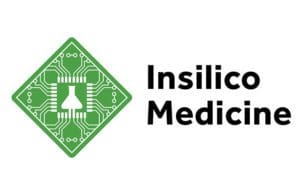 Roughly a year ago, Insilico Medicine announced that it had dosed the first patient in a phase 1 study of INS018_055, an AI-discovered, first-in-class small molecule inhibitor. Now, the company has progressed to the next stage, launching a phase 2 study for the drug candidate.
Roughly a year ago, Insilico Medicine announced that it had dosed the first patient in a phase 1 study of INS018_055, an AI-discovered, first-in-class small molecule inhibitor. Now, the company has progressed to the next stage, launching a phase 2 study for the drug candidate.
Insilico, a founding member of NVIDIA Inception, developed its AI drug-discovery platform on NVIDIA GPUs. Inception is a complimentary program that provides startups with technical training and AI platform support.
The discovery of INS018_055 was the result of combining multiple technologies. Insilico’s proprietary Pharma.AI platform incorporates AI models trained on massive amounts of data. Insilico’s target identification platform, PandaOmics, discovered a novel target. Then Insilico’s generative chemistry platform, Chemistry42, designed the molecule’s structure. In addition, these AI systems rely on machine learning techniques like deep generative models, reinforcement learning and transformers. Insilico uses these techniques to discover new targets and generate new molecular structures.
For more information on the story behind INS018_055, check out our interview with the company’s CEO, Alex Zhavoronkov.
Navigating AI-driven drug discovery: Insilico’s path to phase 2
Here are the key details about the progress and design of INS018_055:
- Role of AI: Insilico discovered and designed INS018_055 with generative AI.
- Drug features: The company describes INS018_055 as an anti-fibrotic small molecule inhibitor, with both the target and molecular structure identified through AI methods.
- Phase 1 results: The drug candidate received positive topline data in Phase I trials, and was tested in 78 and 48 healthy subjects in New Zealand and China, respectively.
- Regulatory traction: The drug candidate received FDA Orphan Drug Designation in early 2023, which refers to its potential to treat a rare disease (in this case, Idiopathic Pulmonary Fibrosis or IPF).
- Phase 2 study design: The phase 2 trials are randomized, double-blind, placebo-controlled trials, a gold standard in clinical trial design. They aim to assess safety, tolerability, pharmacokinetics and preliminary efficacy.
In all, Insilico has a growing pipeline comprising more than 30 programs.
The role of AI-driven drug discovery in the development of INS018_055
Earlier this year, the company announced that it was involved in research employing DeepMind’s deep learning-driven AlphaFold protein structure database to design and synthesize a potential hepatocellular carcinoma (HCC) drug in only 30 days. In May, it also won IND approval for an AI-designed USP1 inhibitor for cancer trials in U.S. and China.
At present, there are only two FDA-approved drugs available for IPF, including Ofev (nintedanib) from Boehringer Ingelheim and Esbriet (pirfenidone) from Genentech. Last year, launched its phase 3 FIBRONEER-IPF study for BI 1015550, a phosphodiesterase 4B (PDE4B) inhibitor for IPF.
Filed Under: clinical trials, Data science, Drug Discovery, machine learning and AI, Pulmonology, Rare disease



